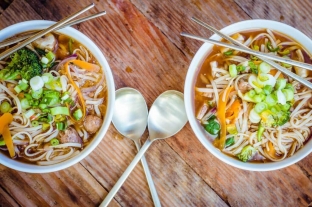Pyelonephritis is an inflammatory disease of the kidneys that is bacterial in nature, difficult to diagnose and often becomes chronic due to delayed or incomplete treatment. The danger of pyelonephritis lies not only in its likely severe complications, but also in the fact that patients often treat the first signs of the disease without proper attention and do not follow medical recommendations well. One of the important components of pyelonephritis therapy is nutrition correction.
The effectiveness of treatment depends on many factors, among which an important role is played by a temporary reduction in the load on the affected kidney, maintaining a water-salt balance (to reduce arterial hypertension and edema), as well as stimulating the excretion of nitrogenous wastes from the body. This is what diet 7 is aimed at for pyelonephritis, which is prescribed for patients with chronic pyelonephritis (outside periods of exacerbation), as well as during remission of the acute form of pyelonephritis.
The essence of the diet for inflammation of the kidneys
The daily content of proteins in this diet is limited to 80 g, fat – up to 90 g. At the same time, at least 70-80% of proteins should be of animal origin, and up to 25% of fats should be vegetable. The daily amount of carbohydrates consumed in this diet for pyelonephritis can be 450-500 g (90-100 g of sugar). The total energy value of 4-5 meals a day does not exceed 2800-2900 kcal, and the allowable amount of table salt is limited to 5-6 grams. In addition, the volume of liquid consumed during the day (including as part of first courses) is 1 liter.
Individually, this amount is adjusted depending on the daily diuresis of the patient.
While following a therapeutic diet 7 for pyelonephritis, you can drink weak black and green (with sugar or honey); compotes and kissels; decoction of rose hips; milk, kefir and yogurt (with a low percentage of fat). Do not drink cocoa, coffee, carbonated and alcoholic drinks and mineral water with sodium.
Permissible amount per day: bread, pastries, cookies - no more than 400 g; chicken eggs - 2 pcs.; meat and poultry (low-fat boiled, baked or stewed) - 150 g. It is strictly contraindicated to eat fatty and fried, spicy and smoked. Food should be boiled or stewed, and best of all – steam.
Diet for acute pyelonephritis
At the beginning of the disease, when pain is felt in the lower back and the temperature rises, the diet for acute pyelonephritis prescribes to drink at least 1.5-2 liters of liquid during the day (water, compote, juice, tea with lemon, rosehip broth) . According to urologists, this contributes to the washing of the urinary tract.
However, during the period of an exacerbation of the disease, the volume of fluid should be limited: per day, the amount drunk should be equal to the volume of urine excreted.
The diet recommended by doctors for acute pyelonephritis, as well as the diet for exacerbation of pyelonephritis – salt-free diet 7A, in which the minimum amount of protein (20 g per day), the amount of fat is reduced to 80 g (of which 15% are vegetable fats), and the amount of carbohydrates is 350 g (including no more than 80 g of sugar). The calorie content of the daily diet is 2200 kcal, and the mode of eating – 5 or 6 times a day.
In acute pyelonephritis, you do not need to use broths, spicy dishes, legumes, smoked and salty, canned food, cakes and pastries, hot spices and seasonings (garlic, pepper, horseradish, mustard, vinegar), as well as coffee and chocolate.
Sometimes a diet during an exacerbation of pyelonephritis excludes the use of bread, meat and fish, as these products can increase acidosis (violation of the acid-base balance of the body in the direction of increasing acidity).

Diet for pyelonephritis in children
The fundamental recommendations on what should be the diet for pyelonephritis in children differ little from the diet for pyelonephritis in adults – mainly in terms of quantity. For example, children between the ages of three and six can eat half a boiled egg a day, and older children – one egg. Although portions of the main dishes may be regular (according to age).
Doctors advise to consume more dairy and sour-milk products, cook only lean meat (veal, rabbit, chicken) and low-fat sea fish. Boiled meat and fish should be given, but without broth.
Diet for pyelonephritis in children includes wheat bread, sugar, butter and vegetable oil, various cereals and pasta, vegetables, fruits, berries, juices and compotes. Can be given to children with pyelonephritis and sweets, with the exception of cakes and pastries with cream and chocolate.
Basic cooking methods are the same as for the adult diet, and the number of meals should not be less than five times a day.
Diet for pyelonephritis during pregnancy
During pregnancy, women may develop so-called gestational pyelonephritis. Due to endocrine changes in the body or from constant pressure on the ureter of the enlarged uterus, there is a violation of the usual physiological tone of the urinary tract and all urodynamics. The result is excessively high pressure in the renal pelvis, which leads to pyelonephritis. In such a situation, a diet for pyelonephritis during pregnancy will help improve the condition of the expectant mother.
The total daily calorie content of this diet is from 2800 to 3000 kcal, and it should contain no more than 60 g of proteins per day, while two-thirds of them – proteins of animal origin. The amount of fat is approximately at the level of 100-110 g per day, and the daily intake of carbohydrates is 450 g. Food should be fractional: small portions up to six times a day.
The diet for pyelonephritis during pregnancy should be practically salt-free (no more than 3 g of table salt per day) and include foods such as: eggs, lean boiled meat, low-fat milk and sour-milk products, cereals, vegetables (except celery, spinach and sorrel), fruits and berries (except black currants, melons and peaches). It is forbidden to use meat, fish and mushroom broths, spicy, salty and canned foods, sausages and smoked meats, chocolate and spices.

A diet for cystitis and pyelonephritis, that is, when an infection affects the bladder in parallel with inflammation of the kidneys, should exclude all spices, onions, garlic, hard cheeses, fish, legumes, radishes, radishes, tomatoes, nuts, sour fruits (including including citrus), chocolate.
Based on materials from ilive.com.ua






Add a comment